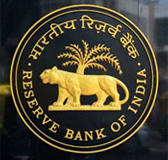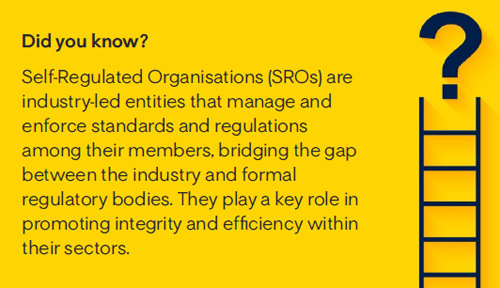 Connect with us
Connect with us

 Apr 02, 2024
Apr 02, 2024
SEBI eases IPO process for business 
In a strategic move to streamline the Initial Public Offering (IPO) process for companies, the Securities and Exchange Board of India (SEBI) has introduced amendments to the SEBI (Issue of Capital and Disclosure Requirements) Regulations, 2018. These changes aim to enhance the ease of doing business in the securities market, offering a more flexible and straightforward approach for companies looking to raise capital through public offerings.
Key amendments include:
Elimination of 1% security deposit requirement: The necessity for a 1% security deposit in public/rights issues of equity shares has been removed, easing the financial and administrative burden on companies during the IPO process.
Flexibility in promoters' contribution: Promoter group entities and non-individual shareholders holding over 5% of the post offer equity share capital are now allowed to contribute towards the minimum promoters' contribution without being classified as promoters, offering more versatility in financing arrangements.
Simplified criteria for offer for sale (OFS): The regulation now stipulates that the increase or decrease in size of an offer for sale (OFS) requiring fresh filing shall be based on only one of the criteria i.e. either issue size in rupees or number of shares, as disclosed in the draft offer document.
Adaptability in bid/offer closing dates: SEBI has introduced the flexibility to extend the bid/offer closing date by one day in case of force majeure events, reducing the previous minimum extension requirement from three days.
These regulatory enhancements are expected to make the IPO process more appealing and accessible to companies by reducing procedural frictions and fostering a supportive environment for capital raising activities in the Indian securities market.
Reserve Bank of India issues Framework for Self Regulated Organisations for Regulated Entities 
The Reserve Bank of India (RBI) has introduced a framework to standardise the governance and operational protocols of Self Regulated Organisations (SROs). This omnibus framework outlines the eligibility criteria, governance standards, characteristics, objectives, responsibilities and membership requirements that SROs must meet for RBI recognition. It encourages SROs to exceed these minimum requirements by developing their own best practices.
Framework highlights:
(1.) Eligibility criteria:
(a) Must be a not for profit entity under Section 8 of the Companies Act, 2013.
(b) Requires adequate net worth, diversified shareholding, and sector representation.
(c) Applicants and directors must exhibit professional integrity and competence, with no adverse legal proceedings
(2.) Governance standards:
(a) SROs should ensure transparency, professionalism, and independence in their operations.
(b) Governance models must align with the highest standards, detailing professional management and conflict of interest resolutions in their bylaws.
(c) The board must include independent members and adhere to a rigorous 'fit and proper' criteria.
(3.) Characteristics of an SRO:
RBI highlights that SROs must have the authority from membership agreements to establish and enforce ethical, professional, and governance standards. They should have strong governance with an emphasis on an independent board, transparency, and well defined processes. SROs are expected to oversee member activities, set clear conduct standards, and outline consequences for rule violations, excluding monetary penalties.
(4.) Objectives of an SRO:
SROs should aim to foster a culture of compliance among its members through a comprehensive code of conduct, serve as a unified voice in interactions with the RBI and other authorities, share sector specific information to support policymaking, and promote research and innovation within the sector.
(5.) Responsibilities towards the regulator:
(a) Keeping the RBI updated on sector developments and reporting any member violations of Reserve Bank rules or regulations.
(b) Completing assignments from RBI, reviewing proposals, and providing data or information as requested.
(c) Submitting an Annual Report within three months of the fiscal year's end, along with periodic or ad-hoc returns as specified by the RBI.
(d) Engaging in regular discussions with the RBI, providing insights, and suggesting improvements from an industry wide perspective.
(6.) Membership criteria:
Membership in an SRO shall be voluntary, with the aim of having a diverse representation from all levels within the sector. RBI will prescribe specific criteria for each category or class of members at the application stage. Existing SROs recognized by the RBI will remain under their current terms unless this new framework is explicitly applied to them.


Bringing a Silent Revolution through the Boardroom
Institute of Directors (IOD) is an apex national association of Corporate Directors under the India's 'Societies Registration Act XXI of 1860'. Currently it is associated with over 30,000 senior executives from Govt, PSU and Private organizations of India and abroad.
Owned by: Institute of Directors, India
Disclaimer: The opinions expressed in the articles/ stories are the personal opinions of the author. IOD/ Editor is not responsible for the accuracy, completeness, suitability, or validity of any information in those articles. The information, facts or opinions expressed in the articles/ speeches do not reflect the views of IOD/ Editor and IOD/ Editor does not assume any responsibility or liability for the same.
About Publisher

Bringing a Silent Revolution through the Boardroom
Institute of Directors (IOD) is an apex national association of Corporate Directors under the India's 'Societies Registration Act XXI of 1860'. Currently it is associated with over 30,000 senior executives from Govt, PSU and Private organizations of India and abroad.
View All BlogsMasterclass for Directors
Categories